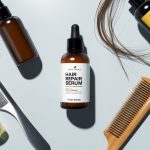How to Reduce Acne Scars Naturally: Proven Skincare Ingredients and Tips
Acne scars are a lingering concern for many, often appearing as dark marks or textured patches even after blemishes have healed.
For those looking to improve their complexion without harsh chemicals, it’s reassuring to know that targeted natural ingredients can help fade acne scars and support healthier skin.
A thoughtful skincare routine utilizing safe, proven remedies can make a real difference for people dealing with scarring.
Popular natural options such as rosehip seed oil, honey, and vitamin C provide gentle yet effective benefits for reducing the appearance of acne scars.
Many experts also recommend including niacinamide, salicylic acid, and glycolic acid as part of a regular routine to support skin renewal and smoothness.
For those who are consistent, these natural treatments can enhance overall skin tone and texture, leading to noticeable improvements.
Those seeking natural methods to reduce acne scars should look for science-backed ingredients and build a skincare routine focused on both safety and results.
Readers interested in specific natural remedies and tips for clearer skin can explore in-depth information on recommended ingredients for treating dark spots and scars at resources such as Proven Skincare and Sublime Life.
Understanding Acne Scars and Their Types
Acne scars form when the skin’s healing process responds to inflamed blemishes, and this process often leads to changes in skin texture or color.
Pigmentation issues, changes in skin tone, and lingering marks commonly accompany acne scarring, each requiring unique approaches for effective management.
Difference Between Acne Scars and Acne Marks
It is important to distinguish between acne scars and acne marks, as each represents a different skin concern.
Acne scars are related to changes in the skin’s structure, like indentations or raised areas, resulting from damage to deeper layers.
In contrast, acne marks—which include pigmentation changes—refer to discoloration left behind after a breakout.
These marks can be brown, red, or purple but do not involve changes in texture.
While scars can be permanent, acne marks usually fade over time, especially with targeted skincare and sun protection.
Identifying the difference helps in choosing between brightening products for pigmentation or texture-smoothing treatments for scarring.
Post-Inflammatory Hyperpigmentation and Erythema
Post-inflammatory hyperpigmentation (PIH) is characterized by flat brown, black, or tan spots that develop after a pimple heals.
This excess pigmentation is more common in individuals with medium to dark skin and can be slow to fade without intervention.
Post-inflammatory erythema (PIE) appears as persistent red or pink spots, primarily in those with lighter skin types.
Unlike PIH, PIE is caused by damaged or dilated blood vessels rather than pigment.
Both PIH and PIE are common after acne inflammation.
They may coexist with other forms of acne marks and scarring, and treating these issues often focuses on soothing inflammation, reducing pigmentation, and supporting the skin’s healing process.
Common Causes of Acne Scarring
Acne scarring develops when severe or inflamed acne lesions, such as cysts and nodules, damage the collagen and tissue beneath the skin.
Picking or squeezing pimples increases the risk of tissue injury, contributing to scarring.
Several elements influence who gets scars, including genetics, skin type, and the duration and severity of acne.
Inadequate or delayed acne treatment can also raise the risk of permanent scarring or lingering pigmentation issues.
Prevention strategies include managing breakouts early, avoiding trauma to active lesions, and using proven topical treatments that address both inflammation and pigment changes.
Understanding what triggers scarring can guide more effective skincare approaches for those concerned about pigmentation and acne scarring.
Essential Principles for Natural Scar Reduction
Effective acne scar reduction relies on protecting the skin barrier, minimizing irritation, and consistently applying sun protection.
Each of these principles plays a distinct and essential role in supporting skin health and natural recovery processes.
Supporting Skin Barrier Health
The skin barrier shields the face from harmful elements and water loss.
When it is damaged—from harsh acne treatments, over-exfoliation, or environmental factors—healing slows and scars may worsen.
To maintain a healthy barrier, individuals should use gentle, fragrance-free cleansers and avoid strong astringents or alcohol-based products.
Regularly applying moisturizers with ceramides, fatty acids, or hyaluronic acid supports repair and hydration.
Incorporating natural ingredients like black seed oil or shea butter can help promote healing and reduce the appearance of scars.
Prioritizing barrier care helps skin recover faster and resist irritation during other treatments.
Avoiding Skin Irritation and Sensitivities
Irritated or sensitive skin is more likely to develop post-acne marks.
People with acne-prone or sensitive skin should avoid physical scrubs and opt for mild chemical exfoliants such as AHAs in low concentrations.
Using too many active ingredients at once—like retinoids, acids, or vitamin C—may trigger redness or inflammation.
Patch testing new products can prevent reactions and setbacks.
Hydrocortisone cream can be helpful if irritation or inflammation occurs, but it should only be used as directed and for short periods.
Selecting non-comedogenic, hypoallergenic products also helps prevent clogged pores and further sensitivities.
Prioritizing Sun Protection
UV rays can darken acne scars and slow the healing process.
Broad-spectrum sunscreen with SPF 30 or higher should be applied daily, regardless of weather or indoor activities.
Mineral-based sunscreens with zinc oxide or titanium dioxide are often better suited for sensitive skin.
Reapplying sunscreen every two hours and using additional protection, such as hats or seeking shade, enhances results.
Since many scar-reducing ingredients (like AHAs or retinoids) increase photosensitivity, diligent sun protection is critical to avoid worsening discoloration and to help scars fade effectively.



